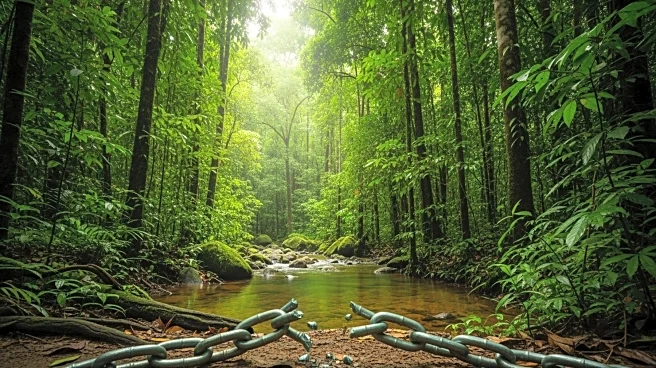What's Happening?
A court in eastern Indonesia has sentenced 11 members of an indigenous community for obstructing nickel mining operations. The ruling has been criticized by rights and environmental groups, who argue that the villagers were protecting their ancestral
lands from environmental harm. The protest was against a powerful mining company accused of encroaching on customary forests and polluting rivers. The case has raised concerns about the repression of indigenous and environmental defenders as industrial exploitation expands.
Why It's Important?
The jailing of indigenous villagers in Indonesia highlights the ongoing conflict between industrial interests and indigenous rights. Nickel mining is crucial for modern industries, including stainless steel production and electric vehicle batteries. However, the expansion of mining operations often leads to environmental degradation and displacement of local communities. This case underscores the need for legal frameworks that protect indigenous rights and promote sustainable development practices.
What's Next?
Rights groups may continue to advocate for the release of the jailed villagers and push for reforms in mining policies to ensure environmental sustainability and respect for indigenous rights. The mining company involved may face increased scrutiny and pressure to engage in more responsible practices. The Indonesian government might need to address the growing concerns over the criminalization of environmental defenders.
Beyond the Headlines
The situation in Indonesia reflects broader global challenges in balancing economic growth with environmental and social justice. It highlights the importance of international cooperation and legal standards to protect vulnerable communities and ecosystems from industrial exploitation.















